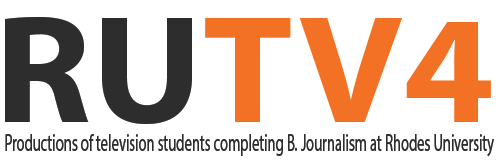

When Good Men Do Nothing

Jason Von Berg
jB Productions
www.jvonblog.blogspot.com
“When Good Men Do Nothingâ€
This documentary centers on telling the story of the 1994 genocide that took place in Rwanda, in which more than one million Rwandan Tutsis were killed within a grim 100 days. It is at this point that I would, as a viewer, suggest that the narrator journalist or producer is expressing his extreme anger towards the leaders of the “free, first world†and the various different organisations associated with it, such as the United Nations. There are two aspects that I will discuss in this response to the documentary, that of the cinematography and my personal emotions that were evoked as a result of watching it.
Firstly in terms of the production itself I think a very effective technique was the way in which the script ran closely to the visuals i.e. when the narrator was referring to New York City, and the United Nations the viewer was able to contextualise and familiarise him/herself with what the narrator was talking about. I would suggest that the ideological meanings presented are done so very effectively too, in that the bigger, better and advanced world is made reference to in comparison to the rural and underdeveloped third world country that is Rwanda. I would also suggest at this point that the narrator speaks of “a small African country†which also has strong ideological meanings.
Another aspect that I found strong within this documentary was the way in which the journalist drew on real footage to get the intended meaning across. What I mean by this statement is that we as viewers get to see footage from Auschwitz, which is supported by a victim’s account of the atrocity. This again runs very closely to the story line of the documentary in that the genocide is seen as the biggest and most horrific event know to man kind in the years of the German holocaust. In the footage presented to us the viewers we get to see how many of the Rwandan refugees were butchered by their fellow countrymen with machetes. One image that I continue to see is that of the hand floating in the river, and how the narrator explains how the Westerners would do nothing to stop the killing, but would prefer to provide goods to the neighbouring countries in order to stop water-born diseases. This must be one of the most difficult things to see and witness as a working journalist, because one becomes so helpless and angry at a system that has by all the means to stop the atrocity, but in fact they choose to do nothing.
This journalist is but clearly angry with those who could have done something to prevent the genocide, or at least prevent the number of deaths. He speaks of the “Killers†and I could not help but wonder with he meant the Hutus or the political leaders in the West. At one stage he draws reference to how the Clinton administration did nothing to stop the events in Rwanda. In fact they refused to recognise these actions as genocide purely based on the fact that if they acted it would affect the outcome of the upcoming congressional elections. I felt like there was a dichotomous effect present in that the Americans were torn between morality, self-gain and greed.
I recently went to visit the Ground Zero site in New York City, a place where nearly three thousand people died on one day, September 11 2001. The world let alone America was absolutely stunned, saddened and shocked that human beings could do that to one another. Well I agree, I share my birthday with this event, but I cannot understand how those in power believe there is a difference between the two. If one is to do the statistics it is evident that 1000 human being were being killed, on average per day for 100 days in Rwanda, and yet the West does nothing to help. But when the attacks in New York City and Washington occurred there was a major outcry and mass mobilization by various countries in support of the War on Terror. It angers me to think how ignorant, self-centred some nations are, so for this narrator it must have been very difficult not show a complete bias, and at the same time been liberating to show the world the faults of the West. I personally felt like it was beneficial to watch this documentary. I appreciate the work of the journalist speaking from a young and inexperienced television producer, and I believe that there are a lot of aspects that can help me in the many exposes I may be involved in someday. It must be so difficult to separate oneself from the story, in terms of telling the story instead of actually being it. I would suggest that this is supported by the example of the one-woman reporter who is being begged by a Rwandan woman to help her. This reporter said she felt completely useless and therefore all she could do was listen to this poor woman in her desperation. It turns out that all those with this lady were found dead. I to be honest would not be able to do that, especially if there were children around, and it is for this reason that I thank a journalist and narrator like Steve Bradshaw for making a documentary like this one.







Leave a Reply